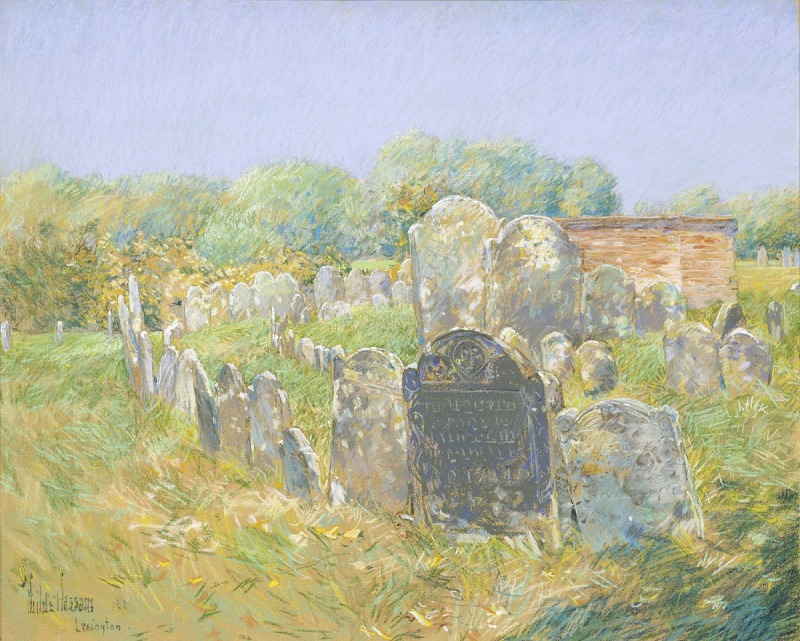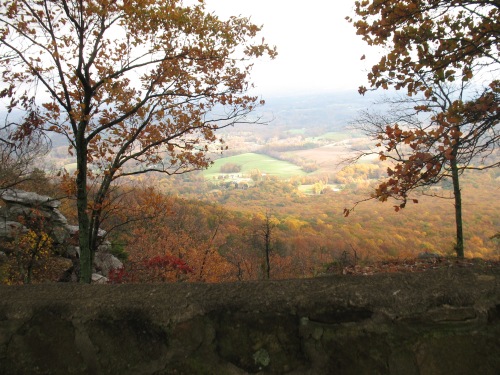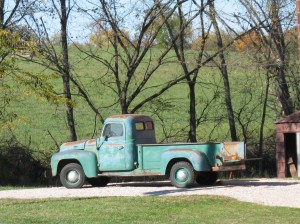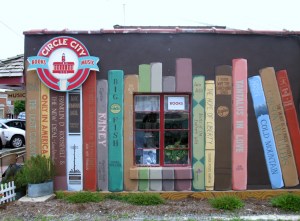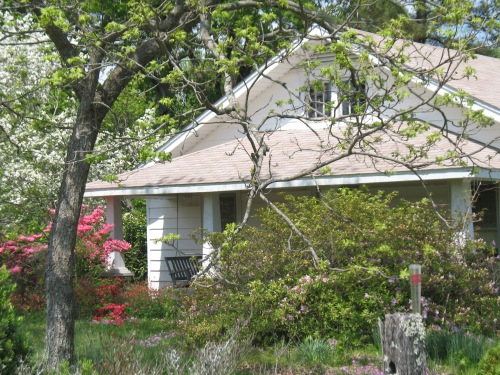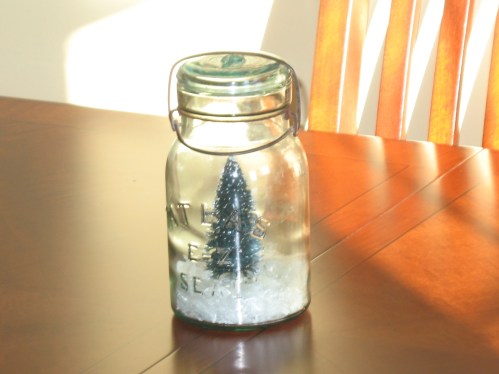 What we achieve inwardly will change outer reality. – Plutarch
What we achieve inwardly will change outer reality. – Plutarch
A winter storm bore down hard on the Persimmon Tree Lodge Bed and Breakfast overnight, surprising even the meteorologists. They had assured us hours before that we would get something festive and superficial—the lightest sprinkling of powdered sugar to freshen the ski slopes. Instead, shrieking harpy winds and a curtain of wet snow swept over the county, blotting out the electricity from time to time and leaving my night manager, Raul, and me trapped in the lodge overnight.
Raul napped at the front desk, confident that no one would attempt to check in on this mad night. But I was fearful of leaving my three sleeping guests to the possibility of no lights and no heat. So instead of walking to the owner’s cottage 20 yards away, I napped on the sofa in the main lodge and fed the fire in case the power went out for good. I’d felt mildly claustrophobic for the month and a half since the Lodge’s grand opening. After the initial flurry of transforming a defunct Girl Scout camp into a bed-and-breakfast lodge, the magic was gone. This freak snowstorm had buried the last of it in heavy, icy snow.
At dawn, the wind subsided. I prepared breakfast for my guests, who were excited about the snow and hungry for cranberry nut pancakes and gallons of hot coffee. As they left the dining area tables and gathered in front of the fire, I cleaned up quickly. I wanted very much to go lock myself inside my cabin, but I could hardly abandon Raul. He should have been able to clock out and leave at 7:00 a.m., but he was stuck here until the snow plow came through and cleared the road.
I also knew I should work harder to amuse my guests until the snow plow passed by. If they were too miserable, they might cut their visit short and check out. Pleasant as it was to imagine them gone, bills must be paid. I gritted my teeth and left the kitchen to join them.
Sylvia Lang, a 20-something who seemed charged with more energy than she could safely handle, and the Colliers, a couple in their mid-60s, chatted in front of the fireplace. So far they still saw the snowstorm as a fun adventure. Since they were occupied I decided to plan lunch.
The one bright spot in this dismal day was that I would have to feed everyone until the snow plow reached us. I was apparently a washout as an innkeeper, but I still loved to cook.
I pulled on my parka and high-stepped through the snow to my cottage. Phillip, my morose maintenance man, had cleared the walks twice since 7:00 in the morning, so it could have been worse. I raided my personal freezer and pantry for non-breakfast foods and lugged the box of provisions to the back door of the lodge kitchen. Naturally it was locked.
I shuffled through snow to the front walk, and entered in the main lobby. “Food for lunch,” I explained to Sylvia, Raul, and the Colliers. Mr. Collier perked up.
I pushed my way rear-end first through the swinging door to the kitchen. I had a loaf of homemade bread from the freezer and several cheeses, plus I had scored four gallon-sized freezer bags of Brunswick stew. I peeled the frozen stew out of the bags and into a stock pot and set it over low heat. I would serve the soup with grilled four-cheese sandwiches.
It was tempting to stay in the kitchen, but I forced myself back to the lobby. All was still serene. Phillip had been in, tracking dirty snow and bark as he brought in firewood. I fetched a Swiffer and wet cloth and mopped up his tracks.
I had never intended for people to stay inside the lodge for this long. Persimmon Tree Lodge was meant to be a cozy refuge between bouts of casual winter sports and shopping excursions to the town of Blowing Rock. My role was to provide lovely guest rooms, a delicious breakfast, and hot tea with fresh cookies in front of the fireplace in the late afternoon as guests drifted in from hiking, shopping, or skiing. They were to sit in front of the fire and enjoy a snack before showering and changing for dinner in town. That was my vision. Not this.
After our soup-and-sandwich lunch, the guests moved back to the sofas in front of the fireplace, and I kept them supplied with hot drinks between cleaning up the kitchen and trying to plot out a more substantial dinner. Mr. Collier checked the depth of the snow every hour and reported the results with tedious regularity. Sylvia told the Colliers that she was making a fresh start, having abandoned a boyfriend and a job as a horticulturist at a botanical garden in Memphis. “I want to tend a smaller garden, something shaggy and natural and a little wild,” she said. She had come to Blowing Rock to clear her head and ski until she figured out her next move. I made a mental note to check that Ms. Lang’s credit card payment had gone through safely.
Mrs. Collier explained they were here to add to her collection of dried-apple dolls and look at antiques and quilts and folk art. I could tell that the ladies were nearly at an end to the possible avenues of conversation, but the mere thought that I should be organizing fun activities sapped me of strength.
Sylvia mentioned the possibility of bundling up and taking a short hike up the path to St. Agnes-in-the-Woods Church, which looked down on the lodge from its loftier height and was picture-postcard adorable—one of the reasons I’d chosen the old Girl Scout camp property. I was desperate for them to go do something, so I lied.
“Legend says the church is haunted.” I tried to dredge up a convincing detail, and remembered an actual fact. “On Christmas Eve, the Christ child disappeared from the church nativity scene and has never been found.”
“Never found,” Raul repeated mournfully from behind the front desk. “A Baby Jesus that fits the manger will cost my church $210. Plus taxes and shipping.”
Mrs. Collier clucked, though it was Mr. Collier who was small and birdlike. Mrs. Collier reminded me of an iceberg, with her twirl of white Dairy Queen hair in a peak representing the visible and her voluminous wraps—soft skirts, tunics, and shawls—concealing the more massive real estate below.
“Your church should have a bake sale,” Sylvia suggested. “You’d raise the money in no time. Grace could make some of her wonderful tea cakes or scones and donate them to sell!”
I could? Raul looked doubtful, too—over the bake sale in general, or in the role I would potentially play, I’m not sure which. “I didn’t know you went to St. Agnes,” I said to Raul, hoping to divert the conversation.
Sylvia Lang said, “We should always help each other when we can. I feel all givey and Christmassy right now. Don’t you think it feels like Christmas Eve?”
It was mid-January, for God’s sake.
“It does!” Mrs. Collier agreed heartily. She is a hearty iceberg, the type that could sink even a sturdy, triple-steel-plated ship.
“Let’s draw names for a gift exchange!” Sylvia’s lethargy seemed cured. Her eyes shone maniacally in the firelight. I wondered if her new life involved running from a criminal past.
Mrs. Collier turned her head to consider this idea, then clapped her hands once. “Let’s do!” she said. “Raul, can we borrow some paper and a pen?”
Raul had been gazing dejectedly at the snow falling. He snapped out of his reverie and pulled out two sheets of Persimmon Tree Lodge stationery and pens.
“We can’t just draw names with three people,” Sylvia said. “Raul, you and Grace will have to draw, too!”
Like Phillip, Raul always looks gloomy, and now he appeared as unenthused as I was. But these were my precious few paying guests, and I did need to make an effort to keep them happy until the final feeding of the day, so I said, “That might be fun.” I looked meaningfully at Raul, and he nodded.
Sylvia and Mrs. Collier wrote names down on torn slips of paper. Phillip came in to tend the fire again, and Mrs. Collier said, “Oh, our good fire keeper must play, too. What’s your name, dear?”
Phillip looked at me. “This is Phillip,” I said. “Phillip, our guests are pretending that it’s Christmas, and we’re going to draw names and give each other presents.” It sounded remarkably stupid when explained, so I half-expected the scheme to fall apart right then. It did not.
“How are we going to shop?” Phillip asked, glancing toward the window. “I cleared the driveway, but the road to town isn’t cleared yet.”
“Fourteen and one-third inches!” Mr. Collier announced.
“Oh, we’re not going to shop,” Sylvia said. She was fired up over this Christmas idea. The tips of her spiky dark hair trembled, glistening with some exotic gel. She seemed electrified. “We’re going to find things around the lodge to give each other. We’ll use imagination and creativity.”
“Great fun,” Mrs. Collier said determinedly.
“You find something for me to give, Eunice,” Mr. Collier said.
I snorted. It had suddenly occurred to me that Mr. Collier was a penguin, and when threatened by a predator he leapt nimbly, comically, onto his iceberg wife. I had seen penguins do that on the Nature channel, and it tickled me every time to see them pop straight up out of the water and onto the ice.
Sylvia held all our names protectively in her long, white hands. Raul, in a fit of creativity of his own that I would not have expected, handed her a canoe-shaped basket that I kept on the front desk. Sylvia dumped the slips of paper in and mixed them with delicate flicks of her fingertips.
“Okay,” she said, “be sure you don’t get your own name, but don’t tell whose name you draw! It should be a surprise.”
I picked last. Sylvia. Great.
Sylvia made up the rules: “The gift must be something here in the lodge or around it. Wrap it as best you can, and meet back here at the fireplace at 4:00.”
Four o’clock was tea and cookies time. It was 1:55 now, and I still had to come up with a suitable dinner for six people. I crushed the Sylvia paper in my hand and tossed it into the fire.
The guests left. Even Mr. Collier disappeared. I looked at Raul and Phillip. “Here are my rules,” I told them. “No lodge property may be given away. No office supplies, no complimentary mini-toiletries, no food from the kitchen. Got it?”
They nodded. Phillip went back outside. Perhaps he would present his giftee with a special piece of firewood. Raul stared thoughtfully into the fire, then went behind the front desk. Sighing, he poked through the trash can with a pencil. I left him to figure it out and went into the kitchen to devise a dinner menu.
My anxiety and irritability began to melt as I peeled and diced sweet potatoes and put them in a bowl of cold water, marinated a semi-frozen pork tenderloin in white wine and fresh garlic, and rinsed turnip greens. I had brought over several jars of homemade applesauce from the cottage; they would be perfect with the pork. As I prepared the food, lulled into serenity by the combination of humming refrigerators and a breath of cloves and cinnamon, my shoulders unknotted and I grew happy again—until I completed my tasks and began to think about the need to conjure a not-Christmas present for Sylvia. I put on my parka and nodded to Raul, still sitting glumly behind the front desk.
“I’m going outside,” I said. “You can look outside for something free, too. Pine cones or whatnot.”
“It is fine,” Raul said. “I am thinking.”
The snow had finally stopped. Something about the complete stillness, the stark whiteness, the feeling of being cut off from everyone and everything in the world, made me want to scream. I don’t know when I’ve ever felt so deeply dissatisfied.
I followed Phillip’s boot-tracks to the lean-to that protected our firewood. Phillip himself was nowhere to be seen, but he had his own hideaways on the property. He was probably in the old barn, with his tools and equipment. It had a little woodstove, and I could see a thin line of smoke coming from the vent pipe.
I looked at the firewood. What the hell was I doing? Taking inventory? All right then. I noted that Phillip had arranged lovely rows of cut oak and pine from deadfall, there was a large stash of purchased cordwood, and tucked in a far corner, an ancient rotting bushel basket held kindling. It was so orderly and abundant that it lifted my spirits, until I realized I had forgotten my mittens. I yearned for them passionately.
A slender, nearly straight offshoot angled down from one of the oak logs, interrupting the symmetry of Phillip’s stack. I took the base of the offshoot in my hand and wrenched it, twisting it around until it broke loose. Freed, it became a magic wand. I closed my eyes and wished fervently, like Sylvia, for a new life. I closed my eyes and waved my oak wand in the air.
Nothing changed. I clambered through the snow back to the lodge and found Sylvia in my kitchen. “I’m snagging some of the leftover coffee,” she explained. She took away the entire half pot of strong, stone-cold morning brew.
I sat on a wooden stool in front of the food prep island and contemplated my oak stick. I felt as if were the only thing I had to hold onto—a sort of handle for the world.
The stick was about 15 inches long, and slightly thicker than my thumb at its base. I peeled the bark away, at first idly, then with more purpose. Like the sudden yearning I’d felt outside for my mittens, I now felt the lack of a magic wand in my life. I was determined to make a real one. I went to the barn and filched wire clippers and sand paper. There was no sign of Phillip.
Back in the kitchen, I put the pork tenderloin in the microwave to finish defrosting. At first I could hear noise from the guest rooms, which I supposed were the sounds of everyone seeking out and preparing their gifts. I thought I heard a distant blow-dryer. Then I became too absorbed in my project to hear anything.
I clipped the handle end of my wand to even it, then sanded it smooth. I whittled a bluntish point at the other end with a paring knife. Even with the sand paper, I couldn’t get all the bark off, but what was left gave the wand character. I had a marker in a drawer that was meant for touching up scratches on the cherry kitchen cabinets, and I used it to stain the unbarked parts a deeper golden brown. I had not felt this sort of deep happiness since the day I had placed the last vintage mixing bowl on the shelves in my dear kitchen, and had looked at it all from the height of my step-stool and felt a surge of pride in all I had accomplished.
I threw my parka back on, ran home—Phillip had cleared the walks again—and dug out a bottle of gold nail polish. It had been a mistake as nail polish, but it was perfection for adding metallic details to the wand: a ring of gold near the handle end, a dot of gold at the tip. I held the finished piece in front of me. It was brilliant.
While the polish dried I preheated the oven for the afternoon batch of cookies and put the kettle on the stove for 4:00 tea. I was humming. Until it occurred to me that I was preparing 4:00 tea and that meant my not-Christmas deadline was an hour and a half away, and I still had no gift for Sylvia.
I ran out to the front desk. Raul still sat there. “Did you find something?” I demanded. “Whose name did you draw?”
“I cannot reveal this. It is secret.”
“What am I going to do?”
But Raul’s dark eyes held no answers, and I realized that I was going to have to make a terrible sacrifice. “Hand me the stapler,” I said. “Please. And the hole punch.”
Raul lifted the Swingline and with an expert, one-handed gesture he opened it to check the magazine. “It is full,” he said.
I took the stapler, then stopped and looked at him directly. “Dang, Raul, I’m lucky to have you working here. Phillip, too. You both do nice work. He is a wizard with the firewood, and frankly I appreciate the fact that you keep the printer full of paper, and the stapler fully loaded, and you never complain even when you probably should. Thank you. You’re wonderful.”
“De nada.” But Raul almost smiled.
“Why don’t you open up the East Room and get some rest in there? You don’t have to work tonight, of course. I’ll stay in the lodge, and if you like you can stay all night in the East Room. But I’ll pay you for overtime.” He flashed a real smile and took the key.
Back in the kitchen I made an envelope to hold the wand, using two lengths of parchment paper stapled shut along the sides. The back piece of paper was several inches longer than the front. Maybe Sylvia will leave it when she checks out, I thought, as I punched holes in the long end, then corresponding holes in the short end. I folded the long piece until the holes matched up, and threaded a bit of kitchen twine through to close it with a bow. I used more nail polish to decorate the envelope with what I considered to be magic swirls. I was ready for not-Christmas.
Just before 4:00, I took a plate of dark chocolate walnut cookies and the tea tray to the lobby. By the time I returned with tea cups, my three guests had gathered in front of the fire. Sylvia’s hair looked more electric than ever. She had changed into a long-sleeved red t-shirt with a giant snowflake on front. Mrs. Collier had also changed. She wore an odd purple knitted shrug over a black turtleneck. The noise of everyone gathering in the lobby brought Raul out of the East Room to join us.
Before I could change my mind and run away with my lovely magic wand, I handed the parchment envelope to Sylvia. Her eyes grew large and dark as she pulled the wand from its wrapping. “How did you know?” she breathed. “This is magnificent! Gosh, Grace, I had you pegged as a Muggle. How could I be so wrong?” Sylvia flicked the wand toward the fireplace, and as if in response the bottom log shifted and broke apart in a fury of red sparks.
“Ohhhhh.” Everyone laughed. Even me. It was impossible not to share Sylvia’s delight.
“My turn.” Sylvia handed Mr. Collier a soft package wrapped round and round with the high-quality toilet paper I stocked in the guest rooms.
As he unwound the wrapping, we were all amused to see Mr. Collier tuck it incrementally into his right pants pocket. “Well, you never know,” he winked. Finally he pulled an exotic silky scarf with an interesting tan pattern. It reminded me of Indian batiks, or the henna patterns on Indian women’s hands. Sylvia explained that she had tie-dyed her white muffler using leftover coffee, then blew it dry with her hair dryer. “It might have shrunk a little in the process,” she admitted. “But I wanted a masculine look. And see? It’s even got your initial. Sort of.” Sure enough, she had managed a rather crooked Gothic “C” on one end. “I think that’s where I used my barrette on it,” she said. “I ran out of rubber bands. A happy accident.”
“Look at that!” Mr. Collier exclaimed. “Now that’s a neckerchief that will keep me warm and won’t show the dirt.” He wrapped the scarf around his jowls and grinned. We all grinned back.
Phillip came through the front door with two chunks of firewood and a misshapen bundle, a little bigger than a breadbox. He handed the package to Raul. “Merry Christmas,” he said, in all seriousness.
“Muchacho,” Raul said awkwardly. He turned the bundle over in his hands, giving it a judicious squeeze. Phillip had wrapped the gift in a piece of newspaper fastened with silver duct tape.
“Well, open it!” Mrs. Collier said.
Raul did, and we were all stunned mute.
“Where did you find it?” I asked Phillip.
“Resting in the cedar tree above the pump house. I walk under that tree a hundred times a day, but I didn’t see it until about an hour ago. I walked to the pump house to try to find a gift, and a clump of snow fell right on my head. I looked up, and there it was. I guess the wind blew it down this way.”
The Christ child, missing from the St. Agnes-in-the-Woods manger scene since real-Christmas Eve, gazed up at Raul with disconcerting knowingness. “We’ll give it back to the church, of course,” Phillip said. “But it was the only thing I could find.” He gave me a sideways glance.
Raul wrapped the Christ child, whose composition swaddling clothes did not seem sufficient cover for a January snowstorm, in the newspaper up to the neck like a homeless guy’s bottle of booze and laid him gently on the hearth. “You have saved my church $210,” he told Phillip. “It is truly a wonderful gift.”
Raul straightened and looked at me solemnly. “This is an auspicious occasion,” he said, “and so I seek a favor from you, Grace. Would you allow my niece, she who is to be married in April, to have her wedding reception here at the lodge?”
“She’s getting married at St. Agnes?”
“Yes. St. Agnes does not have the room for gatherings—a hall. There is no hall. But if my niece Miranda could get married at St. Agnes, then the wedding party could come down the path to the lodge and meet here for the cake. There does not need to be dancing.”
I pictured the wedding party, led by a bride in a floating white veil, coming down the path through the trees to the lodge. “How many should the cake serve?” I asked.
Raul dazzled us all with a smile. “You will make the cake!” he exulted. “This is auspicious, so auspicious. I will be the greatest uncle.” He cleared his throat. “Now I have my gift for Mrs. Collier,” he announced.
Mrs. Collier gasped and leaned forward.
Raul held nothing in his hands; he didn’t reach into a pocket. “I have composed a couplet,” he said gravely.
Mrs. Collier appeared as if she might levitate. “You did?” she whispered.
Raul nodded. “Allow me to recite.”
Raul’s Couplet
I am hoping very much that your Christmas is merry,
With gifts piled high—too many to carry.
Mrs. Collier made him repeat the couplet twice more while she wrote it down on lodge stationery. Like Sylvia with her oak wand, she was nearly beside herself with delight.
“Look at you,” I said to Raul.
When she finished the transcription and had hugged Raul savagely, Mrs. Collier handed a bulging, fuzzy striped sock to Phillip.
“It’s a clean sock,” she said anxiously. “The mate had a hole in the heel, but I’ve always loved those socks so I packed them for this trip anyway. And it turns out that was auspicious, too, because you see I unraveled the sock with the hole, and added yarn from this sweater, and made you a pair of mittens to fit into the good sock, like a stocking. I noticed you weren’t wearing any gloves when you brought the wood in, so I thought they might come in handy. I guess they look a little silly.”
“Thank you,” Phillip said. And then he surprised me very much by stroking the sock as if she had given him something uniquely valuable. He fished the mittens out of the sock and held them up. They were an interesting mix of striped sock yarn and Mrs. Collier’s purple sweater – explaining why it was now an ill-fitting shrug.
“You sacrificed your sweater!” Sylvia exclaimed. “That is so ‘Gift of the Magi.'”
“I hear the snow plow,” I said.
Through the large front window, we saw the headlights of a county snow plow churning up the road past the lodge. “You should be able to get out of here now,” I said. “I expect you all have cabin fever.”
“Hey, now, don’t forget about your gift!” Mr. Collier handed me a small package wrapped in smoothed-out newsprint. Inside it was a paperback book about gardening: Cottage Garden Magic.
“Picked it up in town yesterday at Reread Books,” he said. “I just thought the cover was mighty pretty. But the funny thing is, it has your name on it! Look at those first coupla pages. It’s on one of them.”
I found the quote on the title page.
Everything that slows us down and forces patience, everything that sets us back into the slow circles of nature, is a help. Gardening is an instrument of grace. ~ May Sarton
“Oh, Grace is crying!” Mrs. Collier said in her hearty way. “It is nice, isn’t it, dear?”
“I’m not crying,” I said. But in fact the firelight blurred into starry suns when I looked at it. I said, “I have a pork tenderloin in the oven, so everyone is invited to stay for dinner here, if you like.”
“Dinner here!” Sylvia yelled, waving my wand madly. “It’s Christmas! We want to be home for Christmas! ‘Deck the halls with boughs of holly….'”
“’Fa-la-la-la-la, la-la-la-la!” the Colliers sang.
“Stop waving that stick around,” I told Sylvia. “It’s wreaking havoc.”
I watched my wand wistfully, as Sylvia ignored my request and darted about the lobby, continuing to confer magic.
“Sylvia, I wonder if you would like a job here?” I heard a voice say. It was my voice. “You could be my activities director during the winter, and garden beginning in the spring. I’d been thinking about putting in some herbs and flowers, and organic vegetables.” I held up my new book. “A cottage garden.”
Sylvia stopped spinning. “And plan garden activities all summer long—not just for guests, but for anyone in town, with a small fee paid for snacks or something? And in winter we could do pinecone crafts and make natural Christmas decorations for a gigantic tree!”
And we would need to decorate the lobby and arrange tables for Raul’s niece’s wedding reception. The lodge could become the unofficial fellowship hall for the church.
As if she had read my mind, Sylvia lightly tapped my head with her magic wand. “Grace, it will be fabulous! You are a goddess.”
And in that precise moment, I was.
END
Note: Originally published in January 2013. Sometimes re-runs are fun.
Read Full Post »
